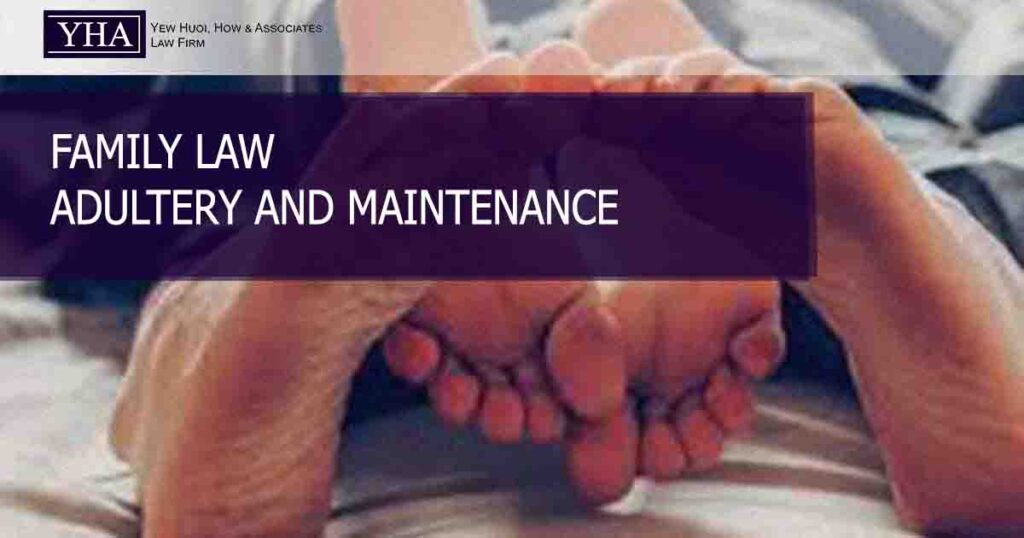Adultery is a legal ground for divorce. However, complication arises in proving adultery. This legal update covers proof and effect when adultery is proven as well as maintenance of wife and children.
How is adultery proven?
- In law, adultery has to be proven on the balance of probabilities. Adultery is not a crime in Malaysia. You don’t have to prove adultery beyond reasonable doubt. However, due to the serious nature of the allegation, the courts have consistently required high degree of probability as proof.
- The easiest way to prove adultery is by engaging private investigator. However, it is of crucial importance to pay attention to avoid being scammed by fake private investigators.
- Private investigators can be called to give evidence in court and the report of their surveillance. Normally, these reports would contain photographs and videos of respondent and co-respondent co-habiting together. Circumstantial evidence of adultery suffices. There is no need to produce evidence of “living in adultery”. Circumstantial evidence of act of voluntary sexual intercourse is enough.
- Next, it must also be proved that the adultery is the cause of the breakdown of marriage. This is where the other party can produce evidence to show that the marriage had crumbled long before adultery.
What happened after adultery is proven?
- Besides being a legal ground for divorce i.e. breakdown of marriage, a petitioner may also claim damages for adultery against the co-respondent (the third party in layman terms) for damages under Section 59 of the Law Reform (Marriage & Divorce) Act 1976 (“LRA 1976”).
- Damages awarded are compensatory in nature. Assessment would be on losses to restore the petitioner (and the children if any) to the life they would have enjoyed if the break-up had no occurred.
- Damages would be monetary in nature. It is at the discretion of the court.
Can husband be ordered to pay maintenance of the wife?
- Section 77 of the LRA 1976 gives power to the court to order a man to pay maintenance to his wife or former wife.
- However, there is no automatic right for a woman to claim maintenance from her husband. The court will consider many of the following circumstances:
- Means and needs of the parties in Section 78; and
- Length of marriage.
- In considering “means and needs of the parties”, the court will analyse the earnings of both the husband and wife. If the wife is a of an able-bodied person and has the means to support and maintain herself, little or no maintenance would be ordered. This is also termed as “self-sufficient” and “self-reliant”.
Can husband be ordered to pay maintenance of the child (if any)?
- Yes. There is a duty for both parents to maintain and contribute to the maintenance of the child. The cost will be half for the child’s health, accommodation, clothing, food and education. This is provided in Section 92 of the LRA 1976.

